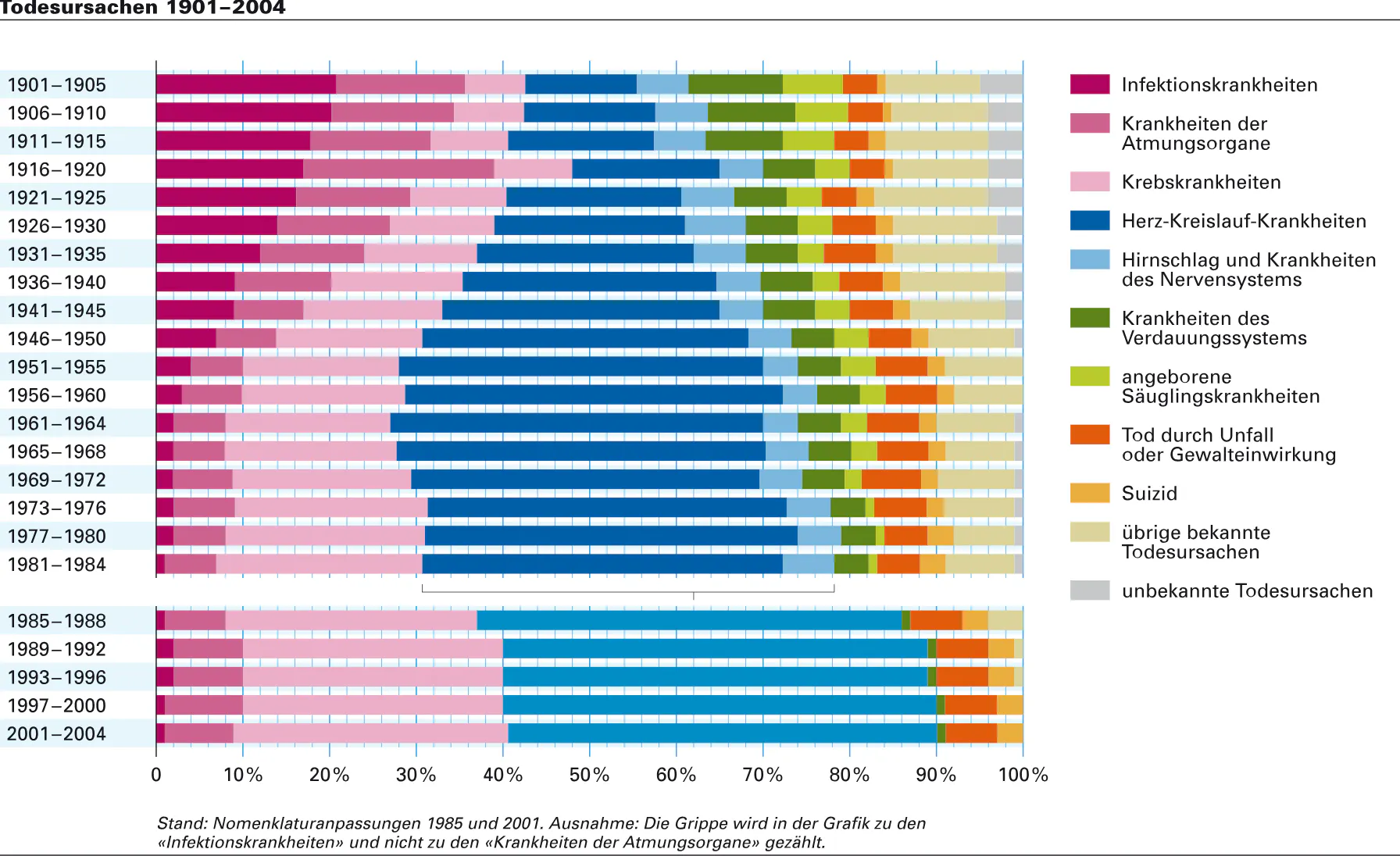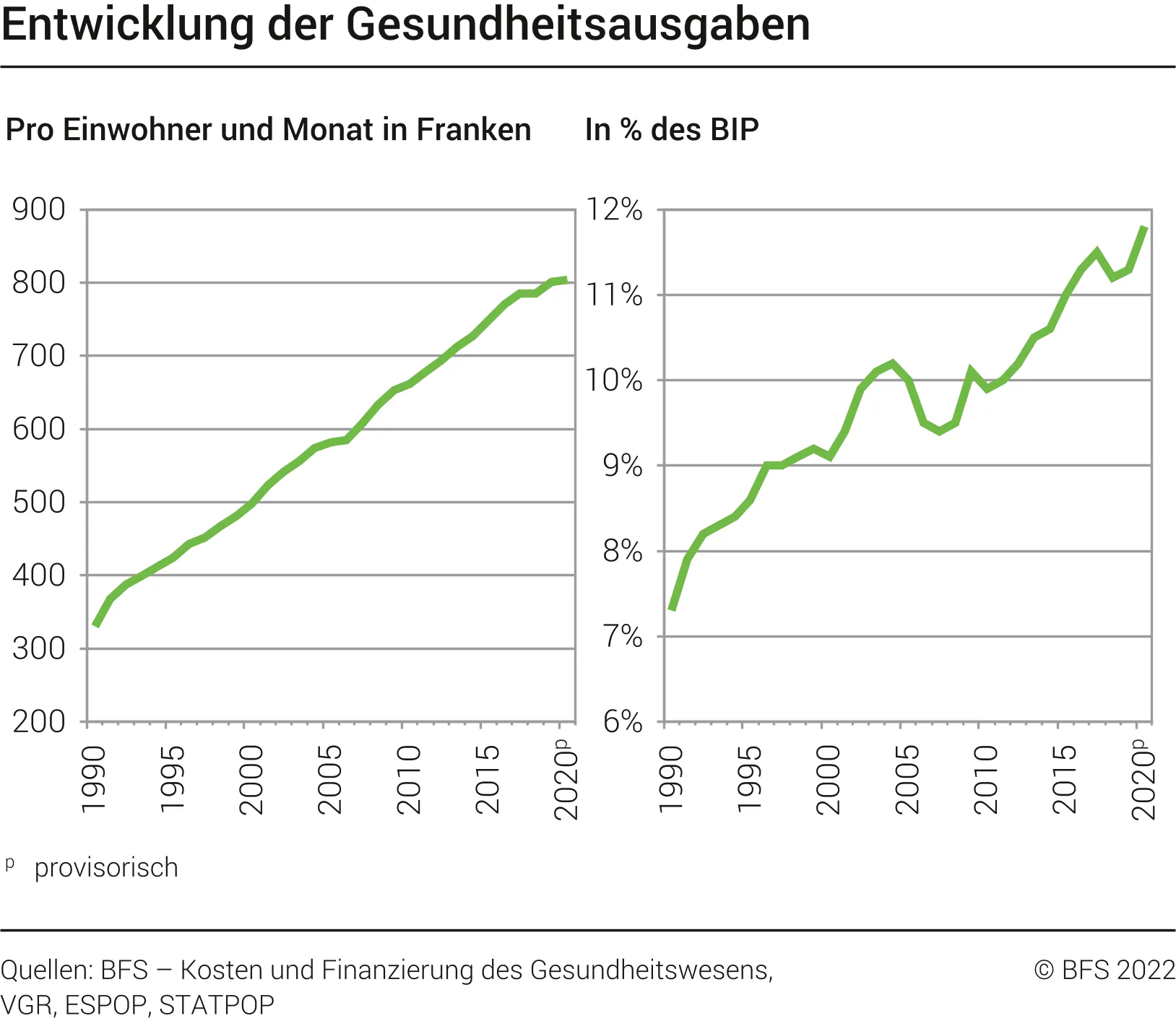As we laid out type: entry-hyperlink id: 62WGz2ykOYdZdJCIMR5IsT, people nowadays mostly die of chronic diseases. This was not always the case. At the start of the last century people died mostly of acute diseases such as infections.

Graph 1: Causes of death since 1901 Source: Swiss Historical Statistics Today`s healthcare system was mostly built to address these challenge of acute disease and has been tremenduously succesful leading to a tremendous rise in life expectancy. What an achievement.
| Life expectancy at birth | Life years (female / male) |
| 1901 | 49 / 47 |
| 2021 | 85.7 / 81.6 |
Table 1: Life expectancy at birth 1901 vs 2021 Sources: Swiss Historical Statistics and Swiss Statistics Office
The problem is that this success brings new problems. Today`s healthcare challenges are mostly aging-driven chronic diseases which require a different approach that our current system is not well configured to address. You could say that due to our success, we have shifted from a fast death to a slow death problem but our healthcare system has not adopted. An indicator of its increasing ineffectiveness might be the ever increasing expense that goes to the system.

Graph 2: Swiss healthcare expenses, 1990 to 2020 Source: Swiss Statistics Office
| 2020 Swiss healthcare expenditures per age group | CHF per life year |
| 41-50 | 4103 |
| 51-60 | 5842 |
| 61-70 | 6047 |
| 71-80 | 7021 |
| share of prevention costs | 3.6% |
Table 2: Swiss healthcare expenditures Source: Swiss Statistics Office While there are certainly various factors that play a role, the bulk of expenses is spent on the last years in life as table 2 shows. The solution could be in better managing aging-driven chronic diseases as we already discussed type: entry-hyperlink id: 62WGz2ykOYdZdJCIMR5IsT. We should not wait until they have manifested themself as disease but need to start before when we are accumulating disease risk. We need to be proactive instead of reactive. Unfortunately, our current healthcare system is not set up to this effect. Only 3.6% of healthcare expenditures go to preventive measures as shown above.
If aging science and practice in our healthcare system would indeed be successful to increase the share of our lifetime spent in good health this is very likely to not just have a tremendous benefit to the individual but indeed save significant costs to the healthcare system as well. Evolving the structure, incentives and education in the system is certainly much easier said than done. Still, the promise of focusing on healthy aging and remaking the system into a true healthcare system is significant.

